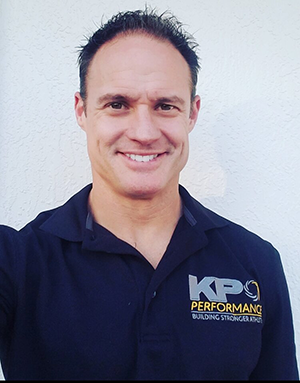Webinar: How runners can build functional strength at home with Elite Strength & Conditioning Coach Kevin Purvis
If you click the following link, you will be able to access the live chat as well: https://youtu.be/iTIHTvcJRSM
4:20: The evolution of how strength training has become important for endurance runners
- Injury prevention comes first, then sport performance.
- You cannot get better if you are injured and losing fitness.
- After you have a healthy athlete, you can tailor the strength training to what event they are preparing for.
6:45: Why strength is important, what strength it, and how much strength is enough
- Hill running and plyometrics are two ways you can build strength without using a traditional weight setup.
- There is no reason to cap strength development if you can continue to build strength without hindering your run training.
- Two days of strength training per week is what Coach Purvis uses with his athletes.
- The amount of strength training you can do in-season is relative to the amount of strength training you did in the off-season.
- It is important to maintain the strength built in the off-season when training through the “in-season” period. Otherwise, you will lose your strength before your important races come up.
- Injury happens because load exceeds tolerance.
14:05: How should a short-distance runner (5K, sprint triathlon) approach training differently from a long-distance runner (marathon, full distance triathlon)?
- Shorter events rely more on power elements of fitness.
- A 5K runner needs to be able to match surges mid-race and be able to kick at the end, so power is important for them.
- Longer events rely more on muscle endurance.
- Marathoners need power elements as well, but most more heavily rely on muscle endurance.
- Some examples of power drills include plyometrics and heavy lifting.
17:19: First break for questions.
- Endurance runners need strength but do not need a lot of muscle mass to be great. In fact, it is beneficial to not carry excess and extra mass in terms of fat or muscle if your goal is performance.
- If you bring your rep ranges down, you can maintain your strength while losing excess muscle weight.
- To build core strength, planks, side planks, bridges, inner thigh, and scapular exercises are essential.
25:20: How can runners build strength at home
- If you have never done strength training, you can build strength at home using your bodyweight.
- If you have been doing strength training at the gym, you will be hard pressed to build strength at home without equipment. Therefore, it is necessary to shift the focus and do more supplemental training.
- It is important to be consistent and establish a routine with your supplemental training.
- It is also important to focus on the drills you are capable of doing with your bodyweight rather than the drills you are not capable of due to the lack of equipment.
- It is necessary to apply progressive overload to build strength.
- When building strength at home, you are lacking that external load. Therefore, you need to focus on building up supporting muscle. If you double down on hip stability, you can improve your lifting when you have the chance to go back to the gym.
29:59: Basic building blocks for strength.
- It is important to have strong glutes.
- Hip mobilization is also important.
- We sit on our glutes all day, which decreases signals to that area.
31:30: What are common mistakes when runners try to build strength?
- It is important to be mindful of when your competitive season is. If you are a few weeks away from your A race, you should not try to jump into strength work. You need to time it correctly.
- You need to have a regular core routine before you take on a heavy squatting or deadlift routine. Your legs may be able to squat or deadlift heavy but your core may not be able to handle it.
- It is important to understand the process in building strength. Your favorite athletes may be able to do a wide range of exercises but it took them a while to build up to that level.
34:50: Second break for questions
- Endurance runners will rarely “accidentally” bulk up too much. So, you do not need to worry about putting on too much mass by doing strength training.
- Don’t give up on your strength training after the first 10-15 days if you don’t feel or see immediate progress. Ideally, you need 6 weeks of training to begin to see notable progress.
46:10: How to compliment a strength routine
- Sleep and diet are crucial to ensure your strength routine is successful.
51:00: Third break for questions & wrap-up
- If you are confined to running around a small space such as a small room or around your house, you need to be mindful of accidentally building up asymmetries from running around in a circle or doing repetitive exercises.
- A good motto for planning when to do strength work is, “Hard days hard. Easy days easy.” You should plan your strength training on days of workouts and truly recover on recovery days.
- If you are running a lot of downhills, you can improve this skill by focusing on the eccentric phase of a workout such as the downward phase of a squat. It is also useful to incorporate downhill running into your training.
- Creatine can be helpful to endurance runners who do strength workouts.

Who: Kevin Purvis is a Boulder CO based strength coach with a focus on endurance athletes. He trains a handful of elite high profile runners and triathletes in Boulder and remotely. Recent results include Jake Riley’s 2nd place finish at the US Olympic Marathon Trials and 2021 Olympic Team Qualifier, Flora Duffy winning her 5th Xterra World Championship (record male or female) and winning her 70.3 debut at IM South Africa 70.3, Sam Long winning IM Chattanooga 140.6, IM Chattanooga 70.3, IM Victoria 70.3, Dede Greisbauer setting the Ultraman World Record at Ultraman Florida, Chris Leiferman winning IM Boulder 70.3 and top 10 at his Kona World Championships debut, and Matt Hanson winning IM Boulder 140.6, IM Traverse City and IM Campeche 70.3.
Why: How runners can build functional strength at home
Topic List:
- Why runners should build full body strength
- How to build strength at home
- What runners should do to complement their strength building program in terms of diet and sleep
Would you like to sign up for alerts on our next webinar?
Please subscribe to our email list here: https://mailchi.mp/stryd/for-the-love-of-running-int

